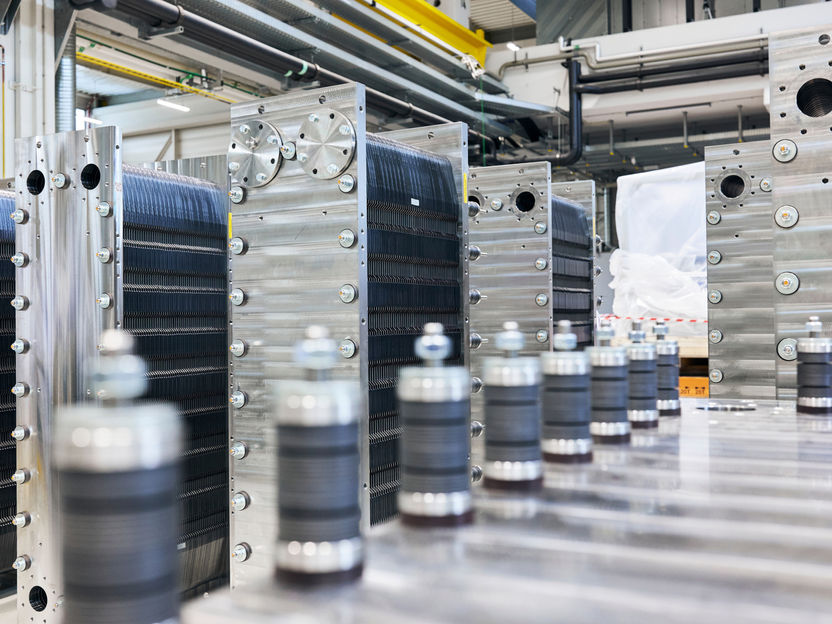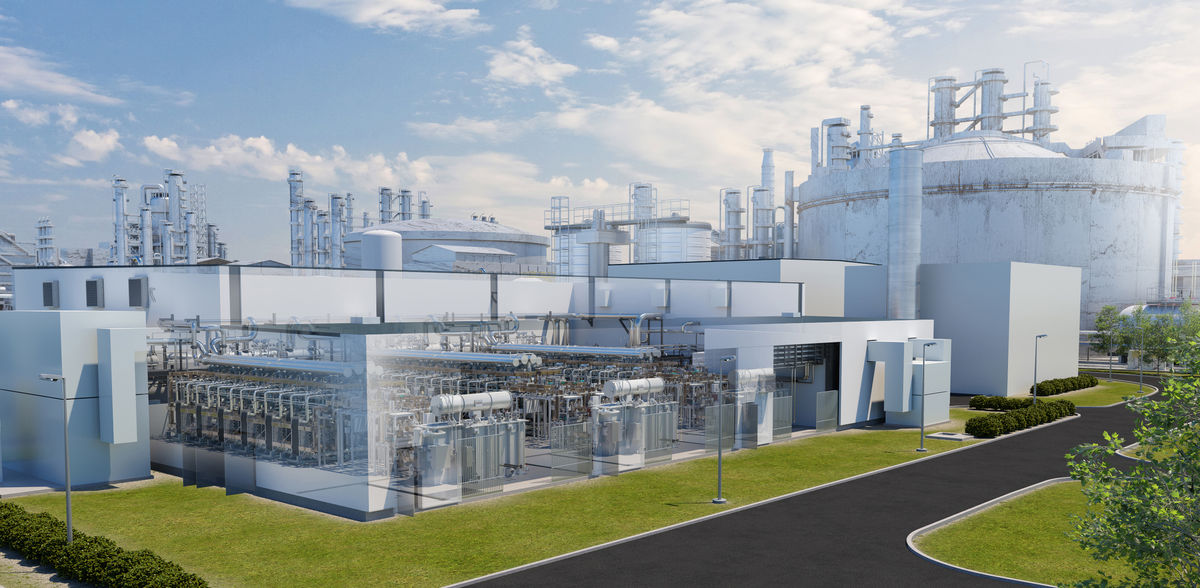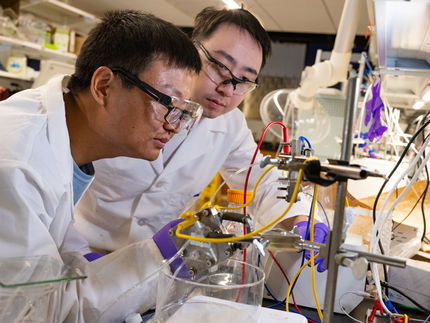CO2-free hydrogen: BASF receives funding approval for 54-megawatt water electrolysis plant
Proton exchange membrane (PEM) electrolyzer expected to produce up to 8,000 metric tons of hydrogen per year
Advertisement
With the approval of funding from the German Federal Ministry for Economic Affairs and Climate Action and the State of Rhineland-Palatinate, BASF has come a major step closer in building a proton exchange membrane electrolyzer. In cooperation with Siemens Energy, work on the water electrolysis at the Ludwigshafen site – the so-called Hy4Chem-EI project – is now entering the next phase of construction. Dr. Franziska Brantner, Parliamentary State Secretary at the Federal Ministry for Economic Affairs and Climate Action, presented the official notification of funding to Dr. Melanie Maas-Brunner, member of the Board of Executive Directors of BASF SE and Site Director Ludwigshafen, in the presence of Malu Dreyer, Minister-President of Rhineland-Palatinate.

The core elements of hydrogen electrolysis are these so-called "stacks". These are currently being manufactured in Siemens Energy's new gigawatt factory in Berlin. BASF is one of the first customers to be supplied from the new gigawatt factory.
Copyright: Siemens Energy
With an output of 54 megawatts (MW) and a capacity of up to 8,000 metric tons of hydrogen per year, the PEM electrolyzer will be one of the largest of its kind in Germany once it is operational. Powered using electricity from renewable energy sources, the system will produce CO2-free hydrogen and thereby reduce greenhouse gas emissions at the site by up to 72,000 metric tons annually. BASF will primarily use this hydrogen as a raw material in the manufacture of products with a reduced carbon footprint. In addition, the company will supply hydrogen for mobility in the Rhine-Neckar Metropolitan Region to support the ramp-up of a hydrogen economy in the area.
BASF and Siemens Energy plan to begin operating the water electrolysis plant in 2025. In cooperation with the State of Rhineland-Palatinate, the German Federal Ministry for Economic Affairs and Climate Protection is contributing up to €124.3 million to the project – up to €37.3 million of which will be financed by the government of Rhineland-Palatinate.
Most read news
Organizations
Other news from the department manufacturing

Get the chemical industry in your inbox
By submitting this form you agree that LUMITOS AG will send you the newsletter(s) selected above by email. Your data will not be passed on to third parties. Your data will be stored and processed in accordance with our data protection regulations. LUMITOS may contact you by email for the purpose of advertising or market and opinion surveys. You can revoke your consent at any time without giving reasons to LUMITOS AG, Ernst-Augustin-Str. 2, 12489 Berlin, Germany or by e-mail at revoke@lumitos.com with effect for the future. In addition, each email contains a link to unsubscribe from the corresponding newsletter.

































































